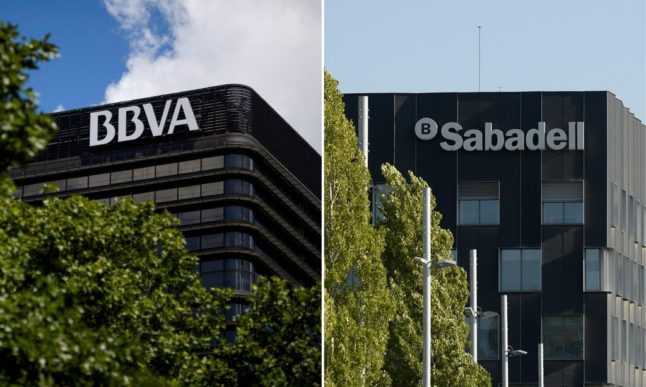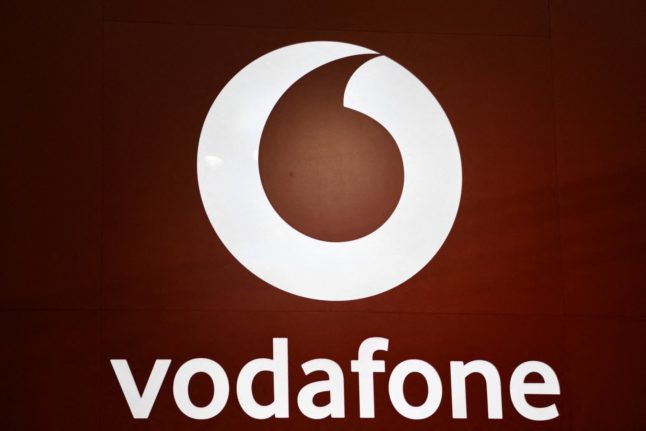The new bid would be carried out under the same conditions as the merger proposal rejected by Sabadell’s board of directors — an exchange of one new BBVA share for every 4.83 Sabadell shares, BBVA said in a statement sent to the Spanish stock market regulator CNMV.
This offer values Sabadell, Spain’s fourth-largest banking group in terms of capitalisation, at nearly €11.5 billion ($12.3 billion).
Sabadell had said Monday that its board had “carefully considered” the initial offer but concluded that it was “not in the best interest” of the bank.
“The board believes that the proposal significantly undervalues the potential of Banco Sabadell and its standalone growth prospects,” it explained, saying it was “highly confident in Banco Sabadell’s growth strategy and its financial targets”.
READ ALSO: How would the BBVA takeover of Sabadell affect customers in Spain?
It also pointed to the recent “decline and volatility in the BBVA share price” which reflected “the uncertainty around the value of the proposal”.
BBVA then informed Sabadell in a letter that it had “no room” to improve its offer, which it considered generous.
BBVA president Carlos Torres Vila is scheduled to take part in a press conference on Thursday at noon (1000 GMT) to discuss its hostile takeover bid for Sabadell.
A merger would have created a banking powerhouse capable of competing with Santander — Spain’s leading bank — as well as with European giants such as HSBC and BNP Paribas.
BBVA, which also has operations in Mexico, Argentina and Turkey, is Spain’s second-largest banking group in terms of capitalisation and has 74.1 million customers.
Sabadell operates in 14 countries and has nearly 20 million customers.
The two banks had initially announced a plan to merge in November 2020 with the aim of better weathering the economic crisis triggered by the Covid-19 pandemic.
But it was scrapped just 10 days later, with Sabadell saying that BBVA’s offer did not reflect the real value of its business.
Banking sector consolidation
In the ensuing months, Sabadell undertook a major restructuring plan to slash costs that resulted in 1,800 redundancies, with BBVA going through a similar process, shedding 3,000 jobs.
Both have since recovered as has the wider Spanish banking sector which posted record profits in recent months, despite an exceptional windfall tax imposed by Spain’s left-wing government to help households cope with soaring consumer prices.
BBVA posted a 19 percent rise in first quarter net profits, which rose to €2.2 billion ($2.3 billion), up from €1.84 billion in the same period a year earlier.
Sabadell recorded first quarter net profits of €308 million, its highest ever quarterly figure, up 50 percent on the same period in 2023.
Spain’s banking sector underwent a first wave of consolidation during the 2008 financial crisis, with the collapse of provincial savings banks which were absorbed by the bigger players.
It underwent further consolidation in 2021 when Caixabank took over Bankia, creating Spain’s third largest banking group, which was followed by Unicaja’s acquisition of Liberbank creating Spain’s fifth biggest domestic lender.



 Please whitelist us to continue reading.
Please whitelist us to continue reading.
Member comments